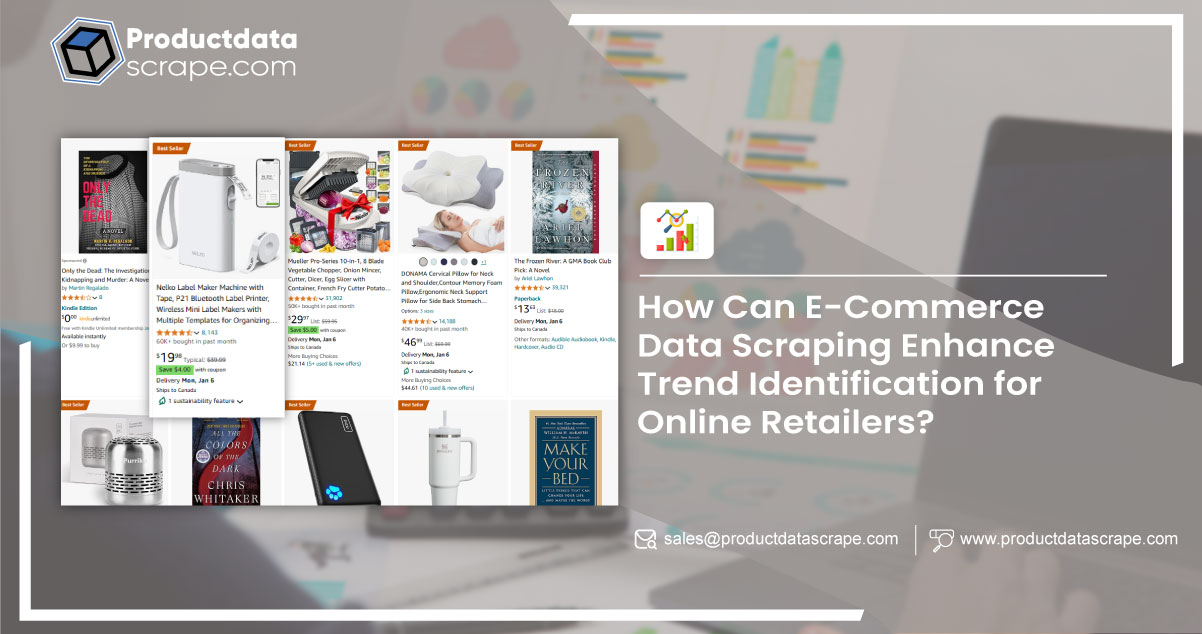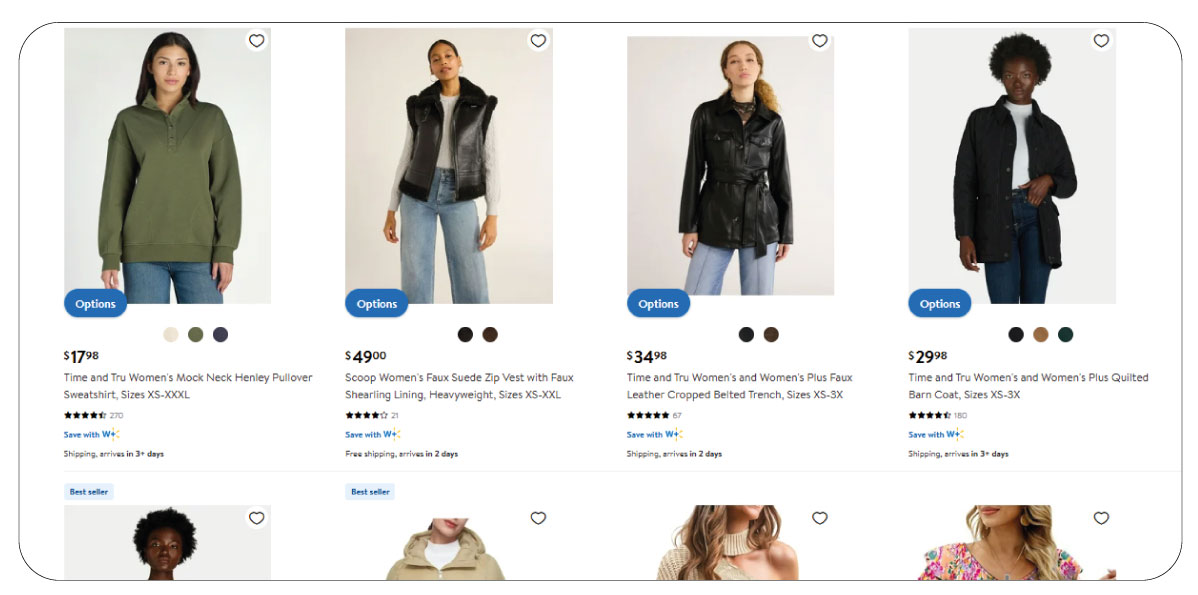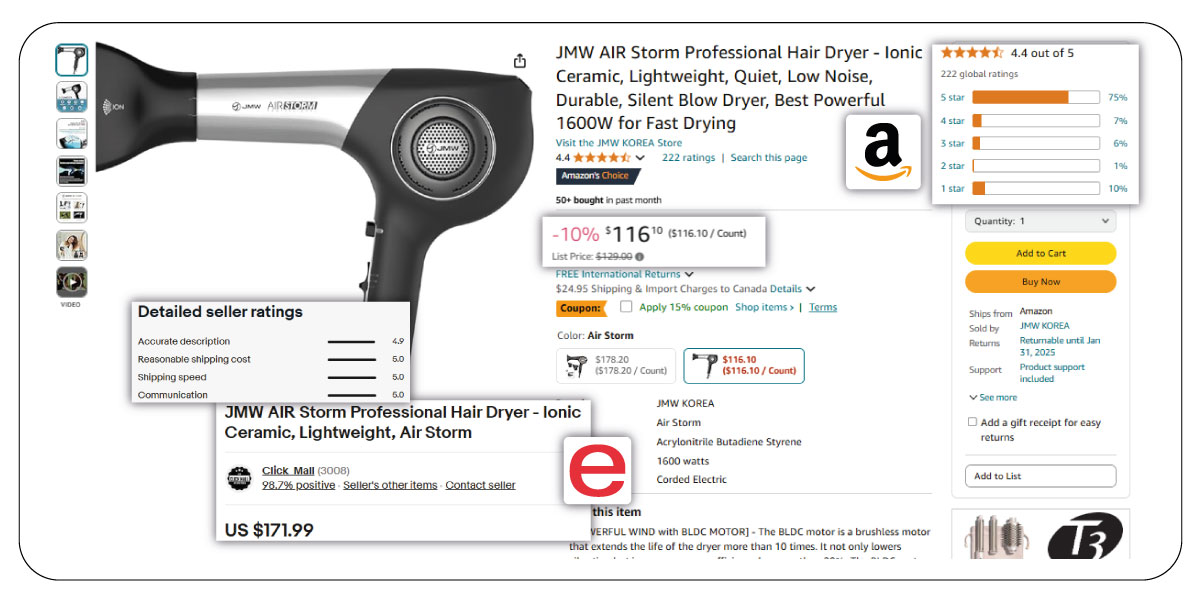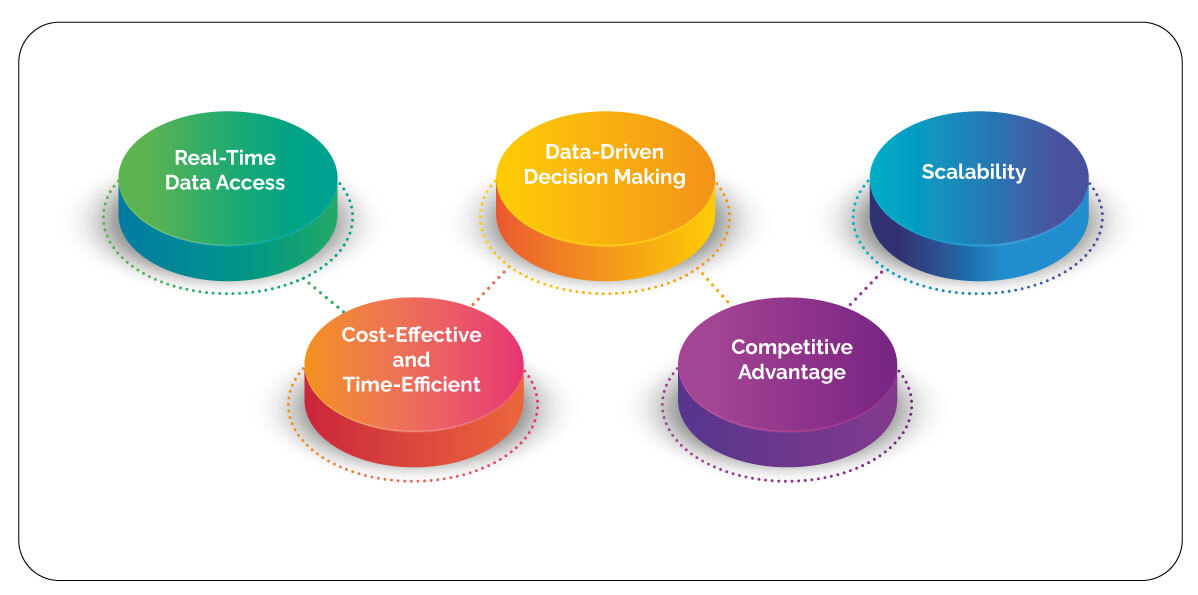
Introduction
In the fast-evolving world of e-commerce, businesses are under constant pressure to remain competitive and align with shifting consumer preferences. E-commerce data scraping has emerged as a powerful tool to achieve these objectives. By leveraging web scraping e-commerce data, businesses can collect valuable insights from various online platforms, such as competitor websites, marketplaces, and social media. This data allows companies to track competitor prices, product availability, customer reviews, and emerging trends, offering a comprehensive market landscape. E-commerce data scraping services help businesses stay updated with real-time information, enabling them to adjust their strategies promptly and effectively. Whether refining product offerings, optimizing pricing, or identifying trending products, web scraping e-commerce data provides the necessary insights for informed decision-making. By harnessing the power of web scraping, e-commerce businesses can improve market research, predict consumer behavior, and maintain a competitive edge in a fast-paced digital marketplace.
The Power of Web Scraping in E-Commerce

Web scraping refers to automatically extracting data from websites using bots or scrapers. In e-commerce, this technology can extract data from competitor websites, online marketplaces, review sites, social media, and other digital platforms. By leveraging e-commerce data scraper, businesses can access valuable insights that would otherwise be time-consuming and impractical to gather manually. Scrape e-commerce data for market research enables businesses to collect real-time data about product listings, prices, inventory levels, customer reviews, and even trends in consumer preferences. This data type is instrumental in understanding the market landscape in-depth and identifying emerging patterns that can help guide business strategies.
How Web Scraping Enhances Market Research?

Web scraping enhances market research by providing businesses real-time data from competitors, product listings, customer reviews, and consumer behavior. This valuable insight helps companies make informed decisions, identify trends, and optimize strategies, ultimately improving their competitive advantage.
- Competitor Analysis: In the e-commerce industry, staying competitive is key to maintaining success. To do so, businesses must understand how their competitors position themselves. Web scraping for e-commerce market research allows companies to continuously monitor competitor websites for valuable information, such as product offerings, pricing strategies, and promotions. By collecting data on competitor activities, businesses can identify gaps in the market, assess the effectiveness of their competitors' pricing models, and fine-tune their strategies accordingly. For example, a business can track the prices of a specific product across different competitor websites and identify the most common pricing points. Additionally, web scraping can provide insights into the types of promotions competitors offer, helping businesses craft compelling promotional campaigns to attract customers.
- Product and Price Tracking: One of the most significant aspects of e-commerce market research is monitoring product prices. Price monitoring allows businesses to track fluctuations across various online platforms in real-time. This enables e-commerce businesses to stay competitive by adjusting their prices dynamically in response to market changes. Extract e-commerce data on product pricing helps businesses analyze and optimize their pricing strategies. Web scraping for price tracking is handy for businesses that sell products across multiple platforms or marketplaces, such as Amazon, eBay, or Etsy. By scraping data from these platforms, businesses can gain insights into the price range of similar products, identify trends in pricing, and optimize their pricing strategies to maximize sales and profit margins. Moreover, businesses can track product availability and inventory levels through web scraping. Suppose a competitor is running low on a popular product. In that case, a company can adjust its marketing efforts or pricing strategies to exploit the competitor's limited supply, potentially increasing sales.
- Trend Identification and Consumer Behavior Analysis: In the dynamic world of e-commerce, trends emerge quickly, and businesses must be able to spot these shifts in consumer behavior to capitalize on new opportunities. Web scraping allows businesses to gather vast amounts of data from multiple online sources, such as review sites, social media platforms, and blogs, to analyze customer sentiment and identify popular products or trends. By scraping consumer reviews and rating data, businesses can gain valuable insights into customer preferences, pain points, and desires. For instance, a particular feature or product category may receive positive feedback, indicating an emerging trend in consumer demand. Recognizing these trends early allows e-commerce businesses to adjust their inventory and product offerings to meet consumer expectations better. Social media platforms are another rich source of trend-related data. By scraping posts, hashtags, and discussions from platforms like Twitter, Instagram, and Facebook, businesses can monitor what products or services are trending and how consumers interact. This can help e-commerce companies identify influencer-driven trends, emerging product categories, and shifts in consumer behavior, which can then be incorporated into their marketing and product strategies.
- Understanding Market Sentiment: Understanding how consumers feel about a product or brand is crucial for shaping marketing campaigns and improving customer experience. E-commerce data extraction services enable businesses to analyze online reviews, ratings, and customer feedback to gauge overall market sentiment. By collecting data from e-commerce platforms like Amazon, Walmart, or online review websites, businesses can determine whether a product is being well-received by customers and identify potential areas for improvement. For example, negative reviews about a product's durability or design can alert a business to possible quality issues, prompting them to make necessary improvements or adjust their marketing messages. On the other hand, positive reviews and high ratings can be leveraged to build brand credibility and attract more customers.
- Geographic and Demographic Insights: Another benefit of web scraping for e-commerce market research is the ability to gather geographic and demographic insights. By collecting data from various regions and countries, businesses can understand regional preferences, demand variations, and market potential in different geographical locations. This information is essential for businesses planning to expand into new markets or optimize their operations within specific regions. E-commerce Product Datasets can also provide demographic insights based on the data scraped from social media platforms or customer reviews. For example, a product that is particularly popular among a particular age group or gender can be identified through sentiment analysis, enabling businesses to tailor their marketing efforts to specific demographics and improve customer targeting.
Benefits of Web Scraping for E-Commerce Market Research

Web scraping for e-commerce market research allows businesses to gather valuable data from online platforms, competitors, and social media. This process helps companies track product trends, analyze consumer behavior, and monitor competitor activities, enabling data-driven decisions for success.
- Real-Time Data Access: One key advantage of web scraping is the ability to access real-time data from multiple online sources. This allows businesses to track market trends, competitor pricing, and consumer preferences as they evolve. Real-time data enables companies to make informed, timely decisions and adjust their strategies quickly to stay ahead of the competition.
- Cost-Effective and Time-Efficient: Manually collecting market research data is labor-intensive and time-consuming. Web scraping automates the process of data extraction, significantly reducing the time and effort required to gather information. This makes market research more cost-effective, allowing businesses to focus on analyzing the data and making strategic decisions rather than collecting it.
- Data-Driven Decision Making: With access to large volumes of data, businesses can make more informed decisions. Whether adjusting inventory levels, modifying pricing strategies, or launching new product offerings, the insights gained through web scraping help businesses make data-driven decisions that lead to better outcomes. Companies can forecast demand, optimize product offerings, and refine marketing strategies by analyzing market trends and consumer behavior patterns.
- Competitive Advantage: In a competitive e-commerce market, the ability to monitor competitors and trends gives businesses a significant advantage. Using web scraping to track competitors' product offerings, pricing, promotions, and customer sentiment, businesses can identify opportunities to differentiate themselves and stay ahead of the curve. Early identification of emerging trends can also help businesses capture market share before competitors do.
- Scalability: Web scraping is scalable, meaning businesses can expand their data collection efforts as needed. Whether a company wants to track one product or thousands of products across multiple platforms, web scraping can be customized to meet its needs. As e-commerce businesses grow and enter new markets, web scraping can quickly scale to collect data from additional sources and regions.
Conclusion
Web scraping has become a game-changer for e-commerce market research and trend analysis. By enabling businesses to gather real-time data on competitors, market trends, consumer preferences, and more, web scraping provides invaluable insights that help businesses make informed decisions, optimize their operations, and stay competitive. As the e-commerce landscape continues to evolve, the ability to leverage data efficiently will be a key driver of success. Web scraping will remain an essential tool for businesses seeking to stay ahead in the digital marketplace.
At Product Data Scrape, we strongly emphasize ethical practices across all our services, including Competitor Price Monitoring and Mobile App Data Scraping. Our commitment to transparency and integrity is at the heart of everything we do. With a global presence and a focus on personalized solutions, we aim to exceed client expectations and drive success in data analytics. Our dedication to ethical principles ensures that our operations are both responsible and effective.




































.webp)






